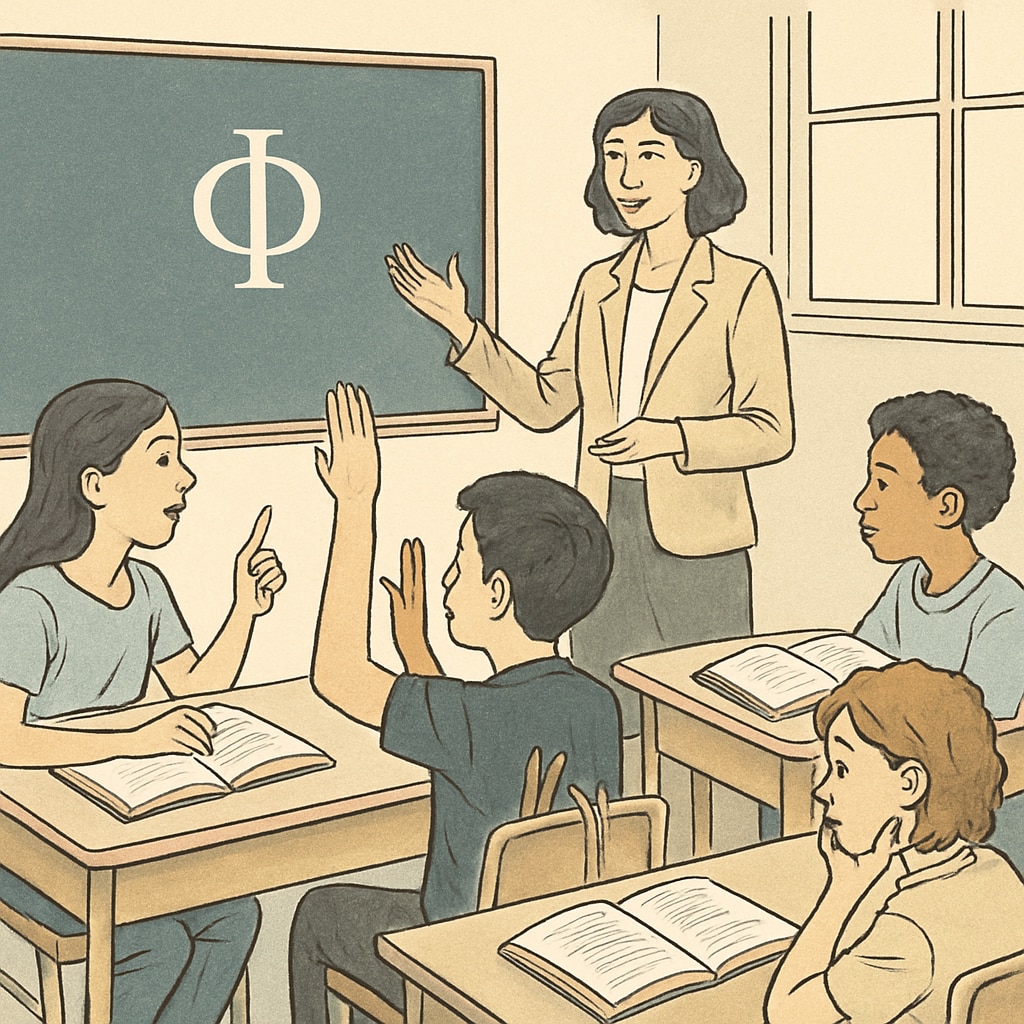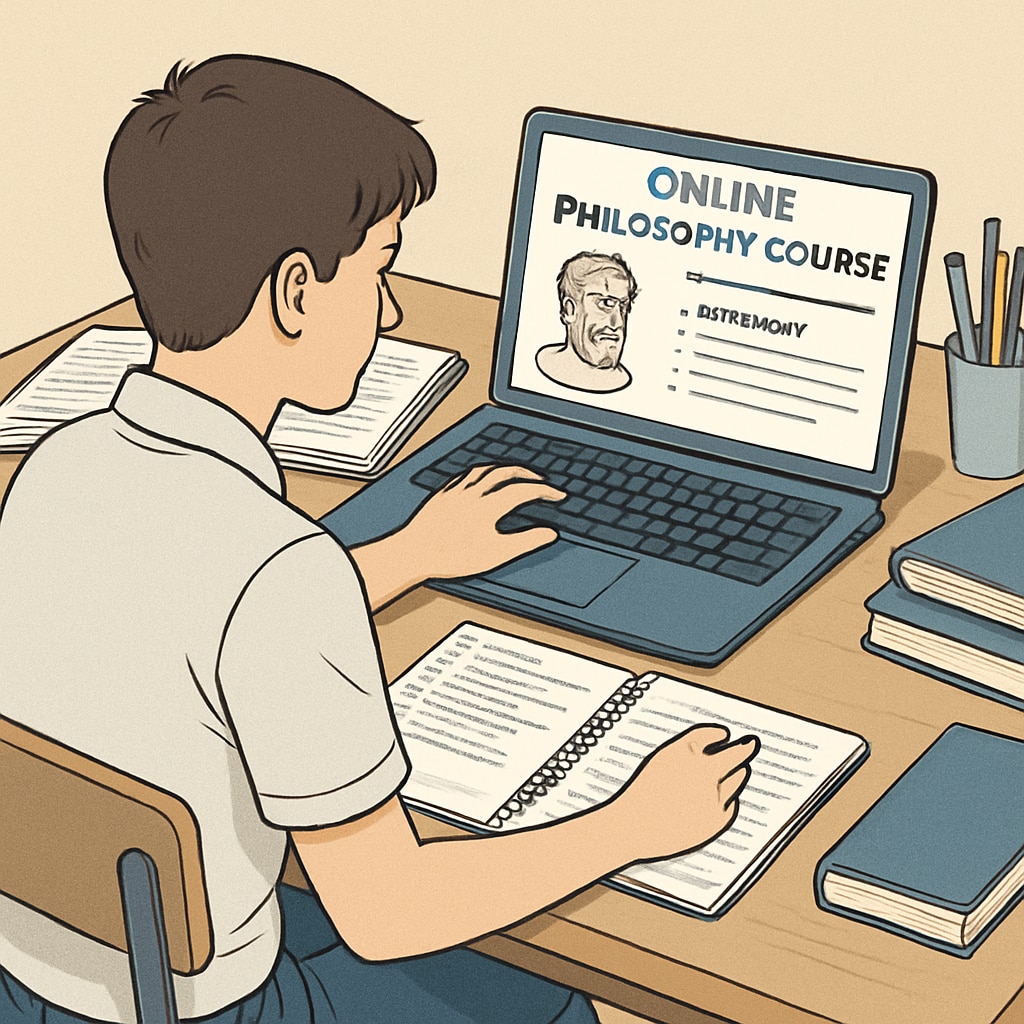For K12 students, the journey into psychology and philosophy can be a transformative experience. By introducing psychology, philosophy, and self-learning resources during these formative years, educators and parents can equip young minds with the tools for self-discovery and critical thinking. This article will guide you through age-appropriate resources and strategies for nurturing a love for these disciplines in students.
Why Teach Psychology and Philosophy in K12 Education?
Psychology and philosophy are not just academic subjects; they are gateways to understanding oneself and the world. Psychology helps students explore human behavior and emotions, while philosophy challenges them to think critically and question fundamental ideas about life, ethics, and existence.
Introducing these subjects during the K12 phase promotes important skills such as:
- Critical Thinking: Encouraging students to evaluate arguments and think logically.
- Emotional Intelligence: Understanding emotions and interpersonal relationships through psychological concepts.
- Ethical Reasoning: Exploring moral dilemmas and ethical decision-making through philosophical inquiry.
These foundational skills are invaluable for personal growth and academic success, making psychology and philosophy essential components of a holistic education.

Age-Appropriate Resources for Self-Learning
When introducing psychology and philosophy to K12 students, it’s essential to use resources tailored to their age and developmental stage. Below are some recommendations:
For Elementary School Students (Ages 6–11)
At this stage, children are naturally curious and enjoy exploring big ideas in simple terms. Use resources that present concepts through stories, games, or interactive activities.
- Books: “What’s the Big Idea?” by Oscar Brenifier introduces philosophical questions in a child-friendly way.
- Games: Philosophy board games like “The Ungame” can spark ethical and philosophical discussions.
- Apps: Apps such as “Smiling Mind” introduce mindfulness and emotional regulation, foundational for psychological understanding.
For Middle School Students (Ages 12–14)
Middle school learners are ready for more structured exploration of psychological and philosophical topics. Use resources that encourage reflection and debate.
- Books: “The Philosophy Files” by Stephen Law simplifies philosophical problems for young minds.
- Videos: Channels like CrashCourse offer accessible introductions to psychology and philosophy.
- Activities: Encourage journaling to explore psychological concepts like motivation and personality.
For High School Students (Ages 15–18)
High school students are capable of engaging with complex theories and abstract concepts. They can benefit from a mix of academic and practical resources.
- Books: “Man’s Search for Meaning” by Viktor Frankl provides a psychological and philosophical perspective on life’s purpose.
- Online Courses: Platforms like edX and Coursera offer free introductory courses in psychology and philosophy.
- Podcasts: Shows like “The Happiness Lab” explore psychological insights in an engaging format.

Tips for Effective Self-Learning
Self-learning can be challenging, especially for younger students. Here are some strategies to make the process more effective:
- Set Goals: Define specific topics to explore each month, such as “Introduction to Ethics” or “Understanding Emotions.”
- Encourage Discussion: Create opportunities for students to discuss what they’ve learned with peers or family members.
- Use Multimedia: Combine books, videos, and hands-on activities to keep learning engaging.
- Reflect and Journal: Encourage students to write about their thoughts and feelings to deepen their understanding.
By fostering curiosity and providing the right tools, students can develop a lifelong love for psychology and philosophy.
The Benefits of Early Exposure to Psychology and Philosophy
Introducing psychology and philosophy at an early age helps students develop a well-rounded perspective on life. They learn to navigate challenges with empathy and reason, understand diverse viewpoints, and make informed decisions.
Moreover, these disciplines encourage intellectual curiosity and resilience, preparing students for both academic and personal success. By integrating psychology and philosophy into K12 education, we empower the next generation to think deeply and live meaningfully.
If you’re an educator or parent looking to inspire young learners, start small. Explore age-appropriate resources, foster open discussions, and watch as students embark on a transformative journey into the world of ideas.
Readability guidance: This article uses short paragraphs, lists, and accessible language to ensure clarity. Active voice and transition words enhance readability, while examples and external links provide additional learning opportunities.


